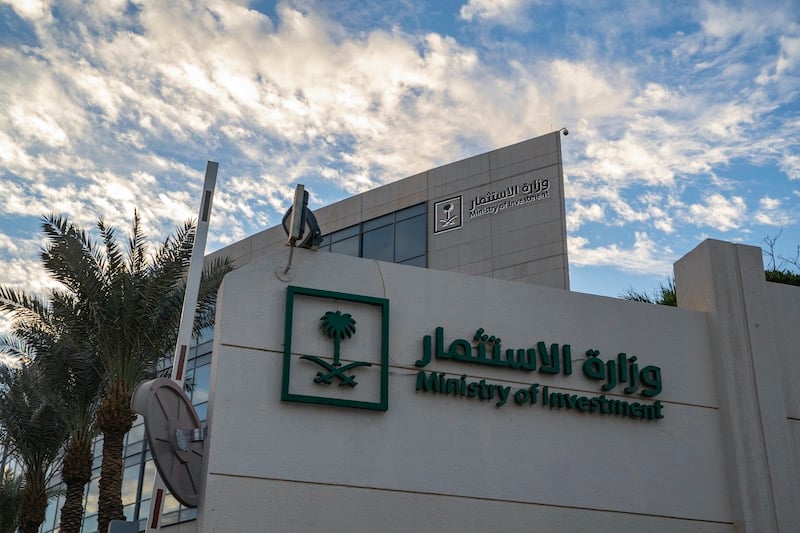Benefits of Branching Out in Saudi Arabia
Expanding your business into Saudi Arabia can be a strategic move. The Kingdom offers a stable economy and a growing market. This makes it an attractive destination for foreign companies.
Setting up a branch in Saudi Arabia allows you to tap into local opportunities. You can do this without the need for a full-fledged subsidiary. This approach can enhance your brand visibility and market share in the region.
Saudi Arabia's Vision 2030 initiative aims to diversify the economy. This provides more opportunities for foreign investors. The government is committed to improving the business environment.
Understanding the benefits and processes of branch setup is crucial. This guide will help you navigate the steps involved in establishing a branch in Saudi Arabia.
Why Expand to Saudi Arabia?
Saudi Arabia is strategically located at the crossroads of Europe, Asia, and Africa. This position offers access to vast international markets. Companies can benefit from Saudi Arabia's robust financial sector and infrastructure.
The Kingdom's economy is stable and growing, fueled by diversification efforts under Vision 2030. This initiative aims to reduce reliance on oil and boost sectors like technology and tourism. Foreign firms can tap into these burgeoning industries.
Additionally, Saudi Arabia provides various incentives to foreign investors. These include tax benefits and simplified regulatory processes. Key reasons to consider expanding into Saudi Arabia include:
- A dynamic and young population
- Significant opportunities in the energy sector
- Access to the Gulf Cooperation Council (GCC) market
These factors make Saudi Arabia an attractive option for global companies.
Key Benefits of Setting Up a Branch Office
Establishing a branch in Saudi Arabia offers numerous benefits for foreign companies. It provides a cost-effective way to enter the market. A branch office requires less initial investment than a full subsidiary.
Branches enhance brand visibility and market reach. Companies can connect with local partners and stakeholders. This boosts market share in the region significantly.
The Saudi legal framework supports foreign investments. A branch office allows companies to operate legally within the country. With the right licenses, businesses can conduct activities smoothly.
Saudi Arabia's advanced infrastructure is another draw. The country boasts a well-developed logistics network. This facilitates the distribution of goods and services efficiently.

In conclusion, setting up a branch in Saudi Arabia offers strategic advantages. These include regional hub potential, market expansion, and legal assurance. These factors contribute to a foreign company’s growth and success.
Understanding the Branch Office Structure
A branch office in Saudi Arabia operates as an extension of its parent company. It does not have separate legal identity from the headquarters. This structure allows seamless integration with the parent organization.
Key elements define a branch office structure:
- Managed by the parent company
- Limited legal responsibilities
- Engages in business similar to the parent company
This structure benefits companies aiming for efficient oversight. Operations align closely with the parent company’s strategies. It ensures consistency in business practices across locations.
Administrative tasks remain under the parent company’s control. This centralized approach simplifies decision-making. It allows for quicker adaptation to market changes and local regulations.
Legal Requirements and Licensing
To establish a branch of a foreign company in Saudi Arabia, obtaining the proper licenses is essential. The Ministry of Investment is the primary body responsible for issuing branch licenses.
A branch license in Saudi Arabia is required for legal operations. This document allows foreign businesses to engage in local commercial activities. It ensures compliance with national regulations.
Requirements for obtaining a license include:
- A valid commercial registration of the parent company
- A comprehensive business plan
- Authorization from the parent company
These documents need submission to the relevant Saudi authorities. Timely approvals depend on fulfilling these prerequisites. Proper documentation streamlines the branch office setup process.
Collaborating with local experts can simplify navigating legal requirements. They can provide critical insights into compliance and licensing nuances. Staying informed about the legal landscape is crucial for effective business operations.
Step-by-Step Guide to Branch Office Setup
Setting up a branch in Saudi Arabia involves several key steps. Understanding each phase is crucial for a smooth transition. Proper planning helps avoid unnecessary delays.
First, draft a detailed business plan. This should outline objectives, market strategies, and financial projections. A clear plan aids in obtaining a branch license.
Next, submit the application to the Ministry of Investment. This includes documentation like the parent company's commercial registration and financial statements. Ensure all documents are up-to-date.
Once licensed, register with the Saudi Arabian General Investment Authority (SAGIA). This grants permission to operate within the kingdom. Compliance with SAGIA regulations is critical.
Key steps include:
- Drafting a business plan
- Obtaining a branch license
- Registering with SAGIA
- Securing a commercial registration
- Opening a local bank account
Finally, handle logistical details such as securing office space and hiring local staff. These steps solidify your branch setup in Saudi Arabia.

Compliance and Regulatory Considerations
Ensuring compliance with local laws is crucial for success in Saudi Arabia. Businesses must adhere to regulatory requirements to operate legally. Non-compliance can lead to penalties and reputation damage.
Key areas for compliance include employment laws and tax regulations. Understanding the nuances of Saudi labor laws helps in proper workforce management.
Furthermore, companies need to keep up-to-date with tax responsibilities to prevent any legal problems.
Important considerations:
- Compliance with labor laws
- Adherence to tax regulations
- Regular updates on legal changes
Regularly consulting with local legal experts can help businesses navigate regulatory challenges efficiently. This proactive approach ensures smooth operations and long-term success in the region.
Common Challenges and How to Overcome Them
Expanding into Saudi Arabia can present various challenges for foreign companies. Navigating cultural differences and language barriers are common hurdles. Understanding local business etiquette is crucial for building strong relationships.
To overcome these challenges, businesses should:
- Engage with local experts
- Invest in language training
- Foster cultural awareness
By taking proactive steps, companies can mitigate potential issues and ensure a smoother transition into the Saudi market.
Tips for a Successful Branch Setup in Saudi Arabia
Establishing a branch in Saudi Arabia requires strategic planning and cultural understanding. Leverage local expertise to navigate regulatory procedures efficiently.
Consider these tips to enhance your success:
- Partner with a local consultant
- Adapt business strategies to align with the Saudi market
- Prioritize compliance with local laws
Strong local partnerships can also pave the way for sustained growth. A tailored approach will ensure your business thrives in Saudi Arabia's dynamic market.
Conclusion: Unlocking Growth in Saudi Arabia
Establishing a branch of a foreign company in Saudi Arabia offers numerous advantages. The strategic location and growing market potential present unique opportunities for expansion and success. By complying with local regulations and obtaining the necessary licenses, companies can seamlessly tap into the region’s vast potential.
Saudi Arabia's commitment to economic diversification and infrastructure development creates a conducive environment for international businesses. By setting up a branch, foreign companies can gain a competitive edge and strengthen their global footprint. Embrace these opportunities to build a prosperous future in the Kingdom’s thriving business landscape.
Your Comprehensive Guide to Opening a Foreign Company Branch in Saudi Arabia 2025
At the heart of a historic economic transformation led by Vision 2030, the Kingdom of Saudi Arabia stands out as one of the most attractive investment destinations globally. With the launch of giga-projects like NEOM, Qiddiya, and the Red Sea Project, unprecedented opportunities have opened up for international companies aiming to expand their operations into the largest economy in the Middle East. Establishing a branch of a foreign company is your gateway to entering this dynamic market and participating in its ambitious growth journey.
This article is your all-inclusive guide, providing a clear and detailed roadmap for the process of setting up a branch of your company in Saudi Arabia. Together, we will explore the competitive advantages, legal requirements, step-by-step procedures, expected costs, and post-establishment obligations to ensure a successful and sustainable launch for your business. Whether you are seeking
Why Choose Saudi Arabia for Your Business? Opportunities and Advantages
Investing in Saudi Arabia is no longer just an option; it has become a strategic move for companies seeking leadership and growth. The Kingdom offers an integrated investment environment supported by unique advantages:
A Strong and Growing Economy: As a member of the G20 and the largest economy in the region, Saudi Arabia offers a massive consumer market with high purchasing power.
Vision 2030 as a Driver of Opportunity: The government is investing billions of dollars in non-oil sectors such as technology, tourism, entertainment, logistics, and manufacturing, creating immense opportunities for foreign companies.
100% Foreign Ownership: Recent regulatory reforms have enabled foreign companies to have full ownership of their branches in most sectors, giving them complete control over their operations and decisions.
A Competitive Tax Environment: The Kingdom features one of the lowest corporate tax rates in the world at 20% on foreign companies' profits, with no personal income tax.
Government Support and Simplified Procedures: The Ministry of Investment (MISA) is leading efforts to simplify procedures and remove obstacles for foreign investors through integrated electronic platforms.
Strategic Location: The Kingdom acts as a bridge connecting three continents, making it an ideal logistics and trade hub for accessing markets in Europe, Asia, and Africa.
Understanding the Legal Entity: What is a Foreign Company Branch?
Before diving into the procedural details, it is essential to understand the legal nature of a foreign company branch. A branch is not an independent legal entity but rather a direct extension of the parent company located outside the Kingdom. This means:
The branch operates under the same name as the parent company and carries out the same or part of its activities.
The parent company is fully and unlimitedly liable for all debts, obligations, and activities of its branch in Saudi Arabia.
Establishing a branch does not require Saudi partners.
The Key Difference: Branch vs. Subsidiary
The concepts of a "branch" and a "subsidiary" are often confused. The following table clarifies the main differences to help you make the most appropriate decision for your company's strategic goals.
| Comparison Point | Foreign Company Branch | Subsidiary |
|---|---|---|
| Legal Status | An extension of the parent company, without a separate legal personality. | An independent legal entity, completely separate from the parent company. |
| Legal Liability | The parent company's liability is unlimited and covers all of the branch's obligations. | The parent company's liability is limited to its share capital in the subsidiary. |
| Capital | No mandatory minimum capital requirement. | Requires a specific minimum capital depending on the legal form and activity. |
| Name & Activity | Must use the same name as the parent company and operate within its scope of activities. | Can have a different name and diverse business activities. |
| Setup Speed & Ease | A relatively faster and simpler setup process. | More complex and time-consuming incorporation procedures. |
| Operations & Contracts | Enters into contracts and conducts business in the name of the parent company. | Enters into contracts and conducts business in its own name as an independent entity. |
The Establishment Journey: A Step-by-Step Guide
The process of establishing a foreign company branch in Saudi Arabia is clear and sequential, passing through three main stages. Engaging experts in
Stage 1: Obtaining the Investment License from the Ministry of Investment (MISA)
This is the most critical first step, as the MISA license is the key to conducting any foreign investment activity in the Kingdom.
Prepare Required Documents: A set of official documents from the parent company must be prepared, attested by the relevant authorities and the Saudi Embassy in the country of origin, and then translated into Arabic. (See the document checklist below).
Submit the Application via the MISA e-Portal: An account is created on the MISA platform, and the license application is submitted electronically with all required documents attached.
Application Review and Approval: The Ministry reviews the application and the submitted business plan. If all requirements are met, an invoice for the license fee is issued. Upon payment, the investment license is granted.
Stage 2: Registration with the Ministry of Commerce (MOC)
After obtaining the MISA license, you move to the next stage to formalize the branch's existence in the Kingdom.
Reserve the Trade Name: Although the branch operates under the parent company's name, the name must be reserved through the Ministry of Commerce's platform.
Apply for the Commercial Registration (CR): An electronic application is submitted via the Saudi Business Center platform, attaching the MISA license and the resolution appointing the branch manager.
Issuance of the Commercial Registration (CR): After review and approval, the CR for the branch is issued, which serves as the company's official birth certificate in Saudi Arabia.
Stage 3: Post-Establishment Procedures
Once the CR is obtained, several steps are necessary for the company to become fully operational:
Chamber of Commerce Registration: This is a mandatory procedure for all commercial entities.
Open a Local Bank Account: An account must be opened in the branch's name at an approved bank in the Kingdom to manage financial transactions.
National Address (WASEL) Registration: Registering the physical office address with Saudi Post.
Registration with the Zakat, Tax and Customs Authority (ZATCA): For tax compliance purposes.
Registration with the General Organization for Social Insurance (GOSI): To register employees (both Saudi and non-Saudi).
Open a file with the Ministry of Human Resources and Social Development (MHRSD): To manage labor files, visas, and comply with Saudization programs (Nitaqat).
Required Documents: A Comprehensive Checklist
Careful preparation of documents is key to accelerating the establishment process. Here is a comprehensive list of the essential documents:
| Document | Important Notes |
|---|---|
| Copy of the parent company's Commercial Registration/Certificate of Incorporation | Must be attested by the Saudi Embassy in the country of origin. |
| Copy of the parent company's Articles of Association and Bylaws | Must be attested and translated into Arabic by a certified translator. |
| Board Resolution from the parent company approving the opening of a branch | Must be attested and translated. It should include the appointment of the General Manager and delegation of powers. |
| Audited financial statements for the parent company's last fiscal year | Must reflect a sound financial position. |
| Power of Attorney for a representative to complete the procedures (if applicable) | Must be attested and translated. |
| Copies of passports for the General Manager and key officials | Passports must be valid. |
| An initial business plan for the branch in Saudi Arabia | Outlining the branch's expected goals and activities. |
Table of Expected Costs for Establishing a Foreign Company Branch
The fee structure is transparent, but advance financial planning is important. The following table provides an overview of the main costs.
| Item | Estimated Cost (in SAR) | Fee Type |
|---|---|---|
| One-Time Setup Fees | ||
| Commercial Registration (CR) Issuance Fee | ~ 1,200 | One-time |
| Publication of Establishment Resolution | ~ 1,000 | One-time |
| Attestation and Certified Translation Costs | Varies (Est: 3,000 - 7,000) | One-time |
| Recurring Annual Fees | ||
| Ministry of Investment (MISA) License Fee | 2,000 | Annual |
| MISA "Investor Relations Center" Service Fee | 10,000 (for the first year), then 60,000 (annually thereafter) | Annual |
| Chamber of Commerce Subscription (by category) | ~ 2,000 | Annual |
| Other Costs | ||
| Professional Consulting Fees | Depends on the scope of services. You can view our service packages. | Variable |
| Office Rent and National Address Registration | Varies significantly by city and location. | Annual/Monthly |
Note: These figures are estimates and may change based on regulatory decisions and the type of activity.
Ongoing Obligations and Regulatory Compliance After Establishment
Obtaining licenses is not the end of the journey. To maintain a sound legal status and avoid penalties, the company branch must continuously comply with Saudi regulations:
Tax and Zakat Compliance: Filing annual tax returns with ZATCA by the specified deadlines.
Financial Auditing: It is mandatory to have annual financial statements audited by a licensed auditor in the Kingdom.
Saudization Programs (Nitaqat): Meeting the required nationalization quotas by employing a specific number of Saudi nationals based on the entity's size and activity.
GOSI Contributions: Paying monthly social insurance contributions for all registered employees.
License Renewals: The MISA license, CR, Chamber of Commerce membership, and other operational licenses must be renewed before they expire.
Managing these obligations requires expertise and precise knowledge of local regulations, which is provided by specialized
How Can Motaded Help You?
The journey of establishing and operating a branch of your foreign company in Saudi Arabia is rich with opportunities, but it also demands precision in procedures and a deep understanding of the regulatory environment. At Motaded, we recognize these challenges and offer you the integrated support you need to turn your ambitions into tangible reality.
Our team of specialized experts will guide you every step of the way, from initial consultations and choosing the optimal market entry strategy, through preparing documents and following up on all government procedures, to providing ongoing support in accounting, tax, and legal compliance to ensure the continued success of your business.
Are you ready to begin your investment journey in the heart of Saudi Arabia's vibrant economy?
